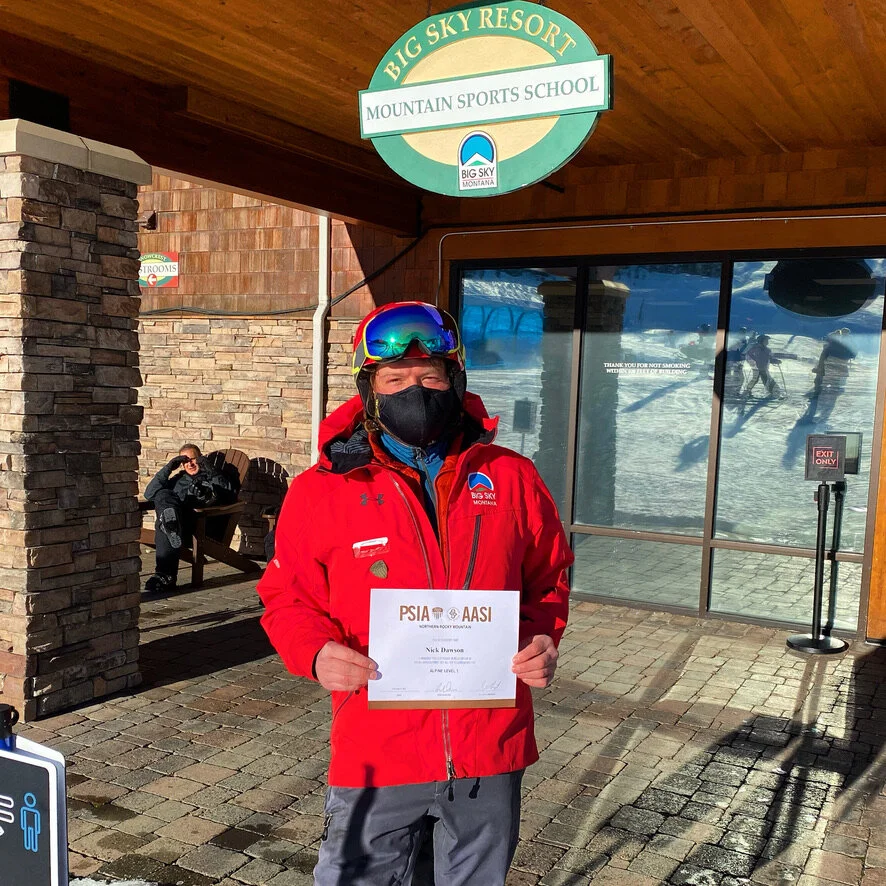Surround yourself with people who want to see you level up
This post is part of a series: 5 things skiing taught me about leading change. You can find the other posts in this series here.
passing an exam
When I showed up on my first day, I thought our ski school would be like a lot of professional environments I’ve seen - competitive. I assumed there was a hierarchy and some fierce, likely unspoken competition around climbing the ranks. Certainly it is true that seniority and skills advancement leads to more desirable and profitable opportunities. But what I wasn’t prepared for was just how cooperative it all was.
A huge component of our winter experience involved training. Training often centers around prepping for certifications. As I was working towards a certification exam, there were some concepts and skills I wasn’t feeling confident about. After sharing my worry, several other instructors offered to spend one of our days off together working on the drills. That kind of thing wasn’t unusual. There was a feeling of cooperation in everything we were doing. It was common practice to know where other instructors were taking their guests. That way, if someone needed to move up or down a level, we had an easy way to make that handoff.
During my end-of-season review, the last thing my manager said was: “we’re getting you in a training pod early next year to get you that next level certification.” It stopped me in my tracks. It wasn’t about performance, or some critical feedback, it was a statement about wanting to support my growth. I was surprised at how novel it felt.
We can’t always control who we are surrounded by professionally. We don’t usually get to pick our boss or co-workers. I remember being part of a leadership team that was very competitive. We had adopted a culture of trying to aggressively be right and be first with answers. The result was often missing chances to help each other level up. We missed chances to have successful hand offs, or to help each other grow our skills. While we didn’t pick each other as colleagues, and we each chose to do nothing about our culture. I wonder what would have happened if I had taken one of my colleagues aside and said “I’d like to see you get to the next level in your career, how can I help?”
Leading change efforts can be fatiguing for everyone involved. It is hard work getting teams to revisit processes, norms, procedures, and culture. When the environment is competitive, it makes the work doubly challenging. One way to short circuit competitive cultures is to ask those around us how you can help them level up? We don’t lose anything when we help someone else grow.
